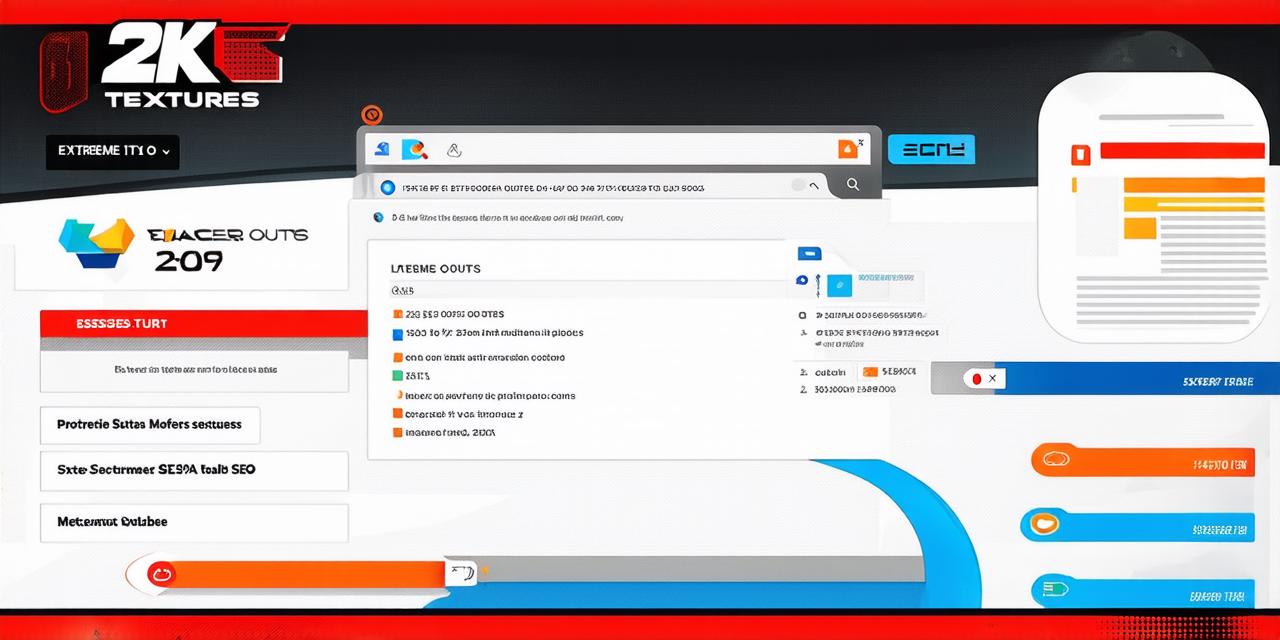Tips for Creating SEO-Friendly Meta Title Tags
Meta titles are a critical aspect of Search Engine Optimization (SEO) that can significantly impact the visibility and discoverability of your 3D games on search engines. A well-crafted meta title can attract potential players and increase the chances of getting higher rankings in search engine results pages (SERPs). In this article, we will provide you with practical tips for creating SEO-friendly meta tags that can help improve the discoverability of your 3D games.
1. Understand the Basics of Meta Titles
Before diving into the specifics of crafting SEO-friendly meta tags, it’s crucial to understand what a meta title is and how it works. A meta title is a piece of code that you include in your website’s HTML code. It specifies the title that appears in the search engine results page (SERP) for each webpage on your site.
Meta titles are critical because they help search engines understand what your website is about and what it has to offer. Additionally, meta titles can also influence how users perceive your game’s relevance to their search queries, which can impact click-through rates (CTR) and ultimately, conversions.

2. Keep it Short and Sweet
One of the most important factors to consider when creating a meta title is its length. Meta titles should be no longer than 70 characters or less, including spaces. This limit ensures that meta titles are visible and readable in SERPs on all devices.
While keeping your meta title short is essential, it’s equally important not to sacrifice quality for brevity. A well-crafted meta title should accurately describe the content of the page while also being compelling enough to entice users to click through to your website.
3. Include Keywords Strategically
Incorporating keywords into your meta titles is crucial for SEO. However, it’s essential to use keywords strategically and sparingly. Including too many keywords can come across as spammy and may negatively impact your search engine rankings.
Instead of stuffing your meta title with as many keywords as possible, focus on using one or two primary keywords that are relevant to the content of your page. Additionally, you can also include secondary keywords that provide additional context and help users understand what your game is about.
4. Make it Unique
Each page on your website should have a unique meta title that accurately reflects its content. Using the same meta title across multiple pages can lead to confusion for search engines and users, making it difficult for them to determine which page is most relevant to their query.
Moreover, using unique meta titles can help improve the relevance of your website to specific queries and increase the chances of getting higher rankings in SERPs. For example, if you have a page dedicated to the storyline of your game, your meta title could be “Discover the Story Behind Our 3D Game.”
5. Be Concise and Engaging
A well-crafted meta title should be concise and engaging, encouraging users to click through to your website. Use action-oriented language that accurately reflects the content of your page and includes keywords strategically.
6. Test and Optimize
Creating an SEO-friendly meta title is just the beginning; testing and optimizing it regularly is essential for maintaining visibility and attracting new players. Use tools like Google Search Console to monitor your website’s search engine rankings and identify areas for improvement.
7. Focus on User Experience
Finally, it’s essential to focus on user experience when crafting your meta titles. Your meta title should accurately reflect the content of your page while also being compelling enough to entice users to click through. Additionally, your meta title should be short enough to fit within the limited space available on smaller screens without sacrificing readability or impacting click-through rates.
In conclusion, creating SEO-friendly meta titles is an essential aspect of optimizing your 3D game for search engines. By following these tips, you can create compelling and effective meta titles that accurately reflect the content of your page while also being engaging enough to entice users to click through. Remember to keep it short and sweet, include relevant keywords strategically, make it unique, be concise and engaging, test and optimize regularly, and focus on user experience to improve your search engine rankings and attract new players.
